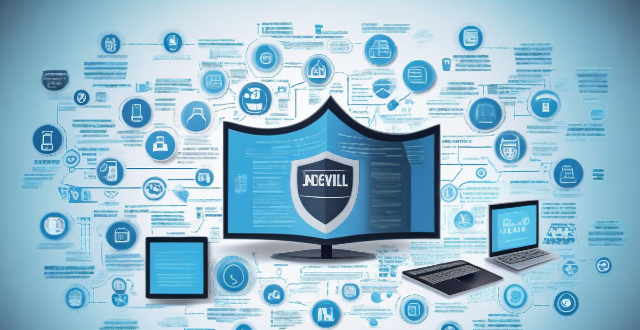A VPN (Virtual Private Network) is a service that encrypts users' internet traffic and masks their IP addresses to protect their privacy and security online. It consists of a client software installed on the user's device and a server that acts as an intermediary between the user and the internet. VPNs use tunneling protocols and encryption algorithms to establish secure connections, with options for both automated and manual configuration methods. They are particularly useful in masking users' IP addresses and ensuring data transmission security. However, some VPN services may impact internet speeds and raise privacy concerns if they collect and sell user data. When choosing a VPN service, consider its performance, reliability, and privacy policy.

How a VPN Service Works
A VPN (Virtual Private Network) is a service that allows individuals and organizations to establish secure, encrypted connections over the less secure Internet. This technology has become crucial for maintaining privacy and security while transmitting data across networks. Here's a detailed breakdown of how a VPN service operates:
1. Overview of VPN Technology
- Definition and Purpose:A VPN creates a private network over the public Internet, enabling users to send and receive data as if their computing devices were directly connected to the same network. This is achieved by establishing a virtual connection via dedicated VPN protocols。
- Encryption and Security:Central to VPN functionality is its ability to encrypt data. Encryption converts data into a coded form, making it unreadable to unauthorized parties. This ensures that even if data is intercepted during transmission, it cannot be understood or tampered with。
2. VPN Components
- VPN Server:The VPN server is the core component of a VPN service. It acts as a bridge between the user's device and the internet, routing all network traffic through itself. The server decrypts incoming data from the user and encrypts outgoing data before sending it to the internet。
- VPN Client:The client software is installed on the user's device. It encrypts the user's data and sends it to the VPN server, which then decrypts it and forwards it to its intended destination on the internet. The client also receives responses from the server, decrypting them for use on the local device。
3. VPN Connection Establishment
- Tunneling Protocols:Several protocols are used to establish a VPN connection, including Point-to-Point Tunneling Protocol (PPTP), Layer 2 Tunneling Protocol (L2TP), and Internet Protocol Security (IPSec). Each has its advantages in terms of speed, security, and compatibility。
- Security Algorithms:VPN services employ various encryption algorithms such as Advanced Encryption Standard (AES), which is widely considered one of the most secure. These algorithms ensure that data transmitted over the VPN remains private and secure。
4. VPN Configuration Methods
- Software-based Configuration:Many VPN providers offer customized clients for different operating systems. For example, macltntrt is an Apple-recommended software for configuring a VPN on macOS devices. This software simplifies the setup process by automating the configuration and connection procedures。
- Manual Configuration:For more technically inclined users or those requiring custom setups, manual configuration is possible. This involves setting up the VPN within the network settings of the operating system, allowing for greater control over the VPN connection's specifics。
5. VPN in Operation
- Data Transmission:When a user accesses the internet via a VPN, their data is first encrypted by the client software and then sent to the VPN server. The server decrypts this data and forwards it to the internet. Responses from the internet are similarly processed and encrypted before being sent back to the user's device。
- IP Address Masking:One of the key features of a VPN is its ability to mask the user's IP address. By assigning a temporary IP address from its servers, a VPN service hides the user's actual location and IP address, providing anonymity and privacy online。
6. VPN Policy and Regulation
- Legal Basis and Policies:In some countries, like China, there are specific laws and policies governing VPN usage. For instance, the Data Security Law improves data governance and protection, affecting how VPN services are operated and regulated to ensure security and compliance with national standards。
- Impact on Users:While regulations aim to maintain order and security, they often assure that legitimate uses of VPNs, such as secure access to business networks by expatriate workers, are not affected. Users are typically protected by law regarding their communication freedoms and data security。
7. Advantages and Disadvantages of VPNs
- Privacy and Security:The primary advantage of a VPN is enhanced online privacy and security. By encrypting data and masking IP addresses, VPNs protect users from surveillance, hacking attempts, and data breaches。
- Potential Issues:Some VPN services can impact internet speeds due to the encryption and decryption processes. Additionally, free VPN services may collect and sell user data or inject ads into your browser, compromising privacy。
8. Choosing a VPN Service
- Performance and Reliability:When selecting a VPN service, consider its performance in terms of connection speed and stability. Reviews and comparisons of different services can provide insights into their reliability。
- Security and Privacy:Ensure that the chosen VPN has a clear privacy policy, preferably one that supports a no-logs policy, meaning it doesn't track or store your online activities。
To conclude, understanding how a VPN service works not only enhances individual privacy and security but also provides insights into the broader cybersecurity landscape. With increasing digital interconnectivity and rising data protection concerns, utilizing a VPN is becoming essential for anyone looking to protect their online presence securely.